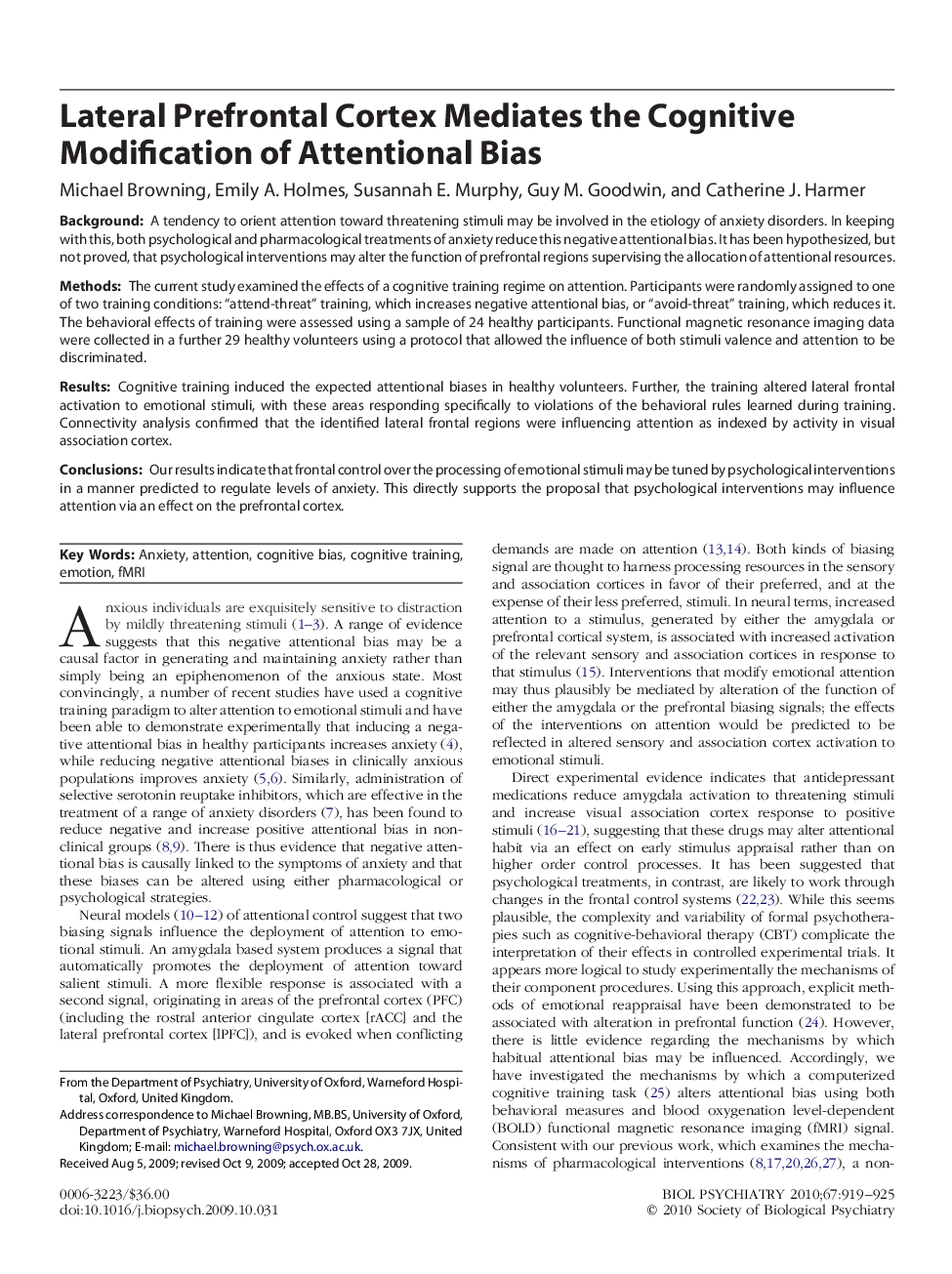| Article ID | Journal | Published Year | Pages | File Type |
|---|---|---|---|---|
| 6228986 | Biological Psychiatry | 2010 | 7 Pages |
BackgroundA tendency to orient attention toward threatening stimuli may be involved in the etiology of anxiety disorders. In keeping with this, both psychological and pharmacological treatments of anxiety reduce this negative attentional bias. It has been hypothesized, but not proved, that psychological interventions may alter the function of prefrontal regions supervising the allocation of attentional resources.MethodsThe current study examined the effects of a cognitive training regime on attention. Participants were randomly assigned to one of two training conditions: “attend-threat” training, which increases negative attentional bias, or “avoid-threat” training, which reduces it. The behavioral effects of training were assessed using a sample of 24 healthy participants. Functional magnetic resonance imaging data were collected in a further 29 healthy volunteers using a protocol that allowed the influence of both stimuli valence and attention to be discriminated.ResultsCognitive training induced the expected attentional biases in healthy volunteers. Further, the training altered lateral frontal activation to emotional stimuli, with these areas responding specifically to violations of the behavioral rules learned during training. Connectivity analysis confirmed that the identified lateral frontal regions were influencing attention as indexed by activity in visual association cortex.ConclusionsOur results indicate that frontal control over the processing of emotional stimuli may be tuned by psychological interventions in a manner predicted to regulate levels of anxiety. This directly supports the proposal that psychological interventions may influence attention via an effect on the prefrontal cortex.
